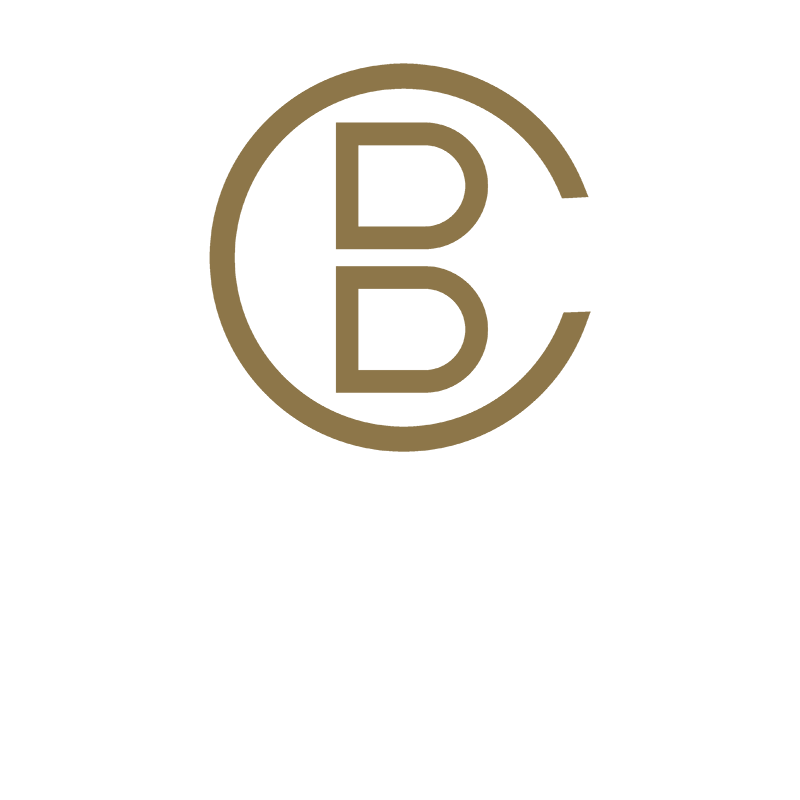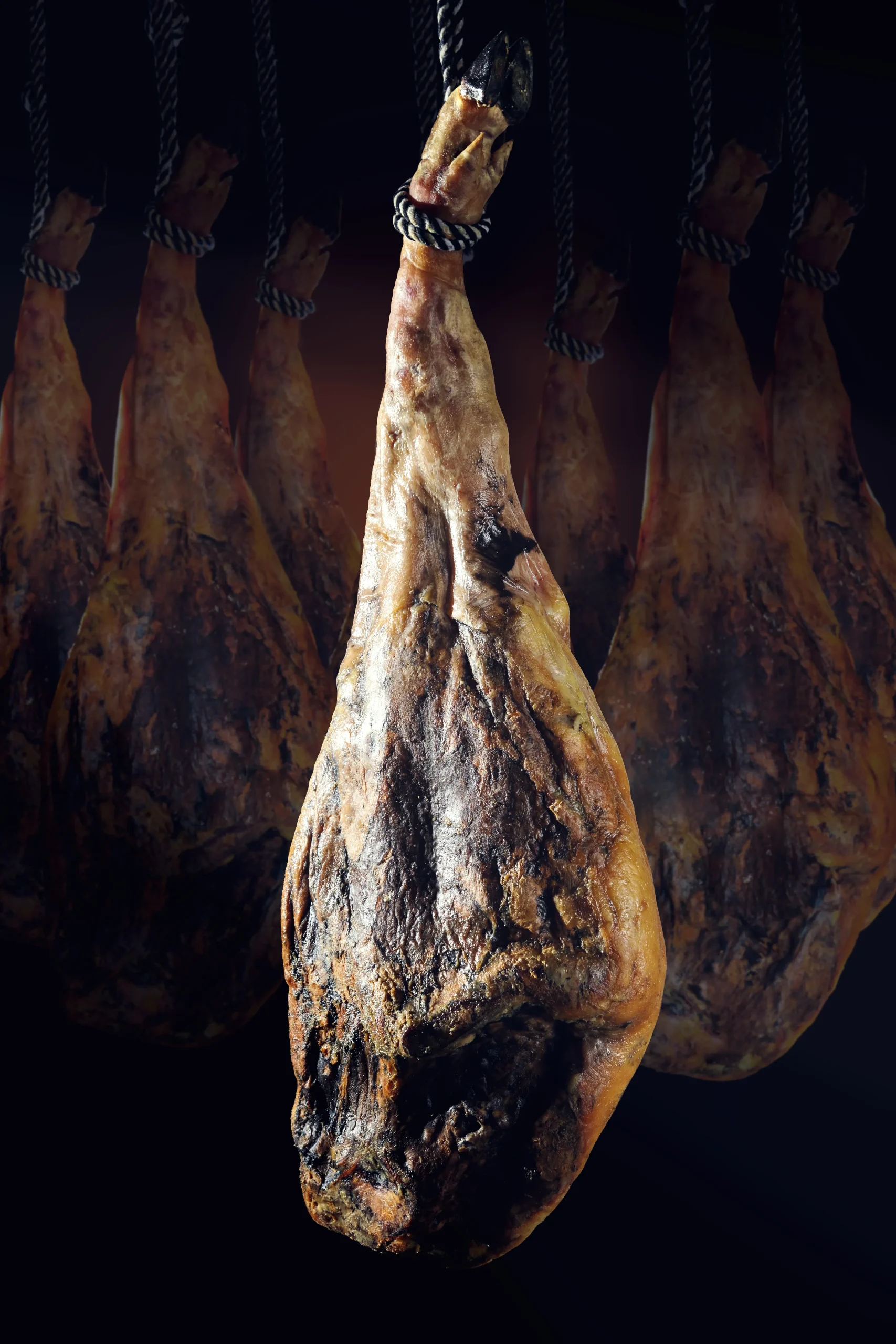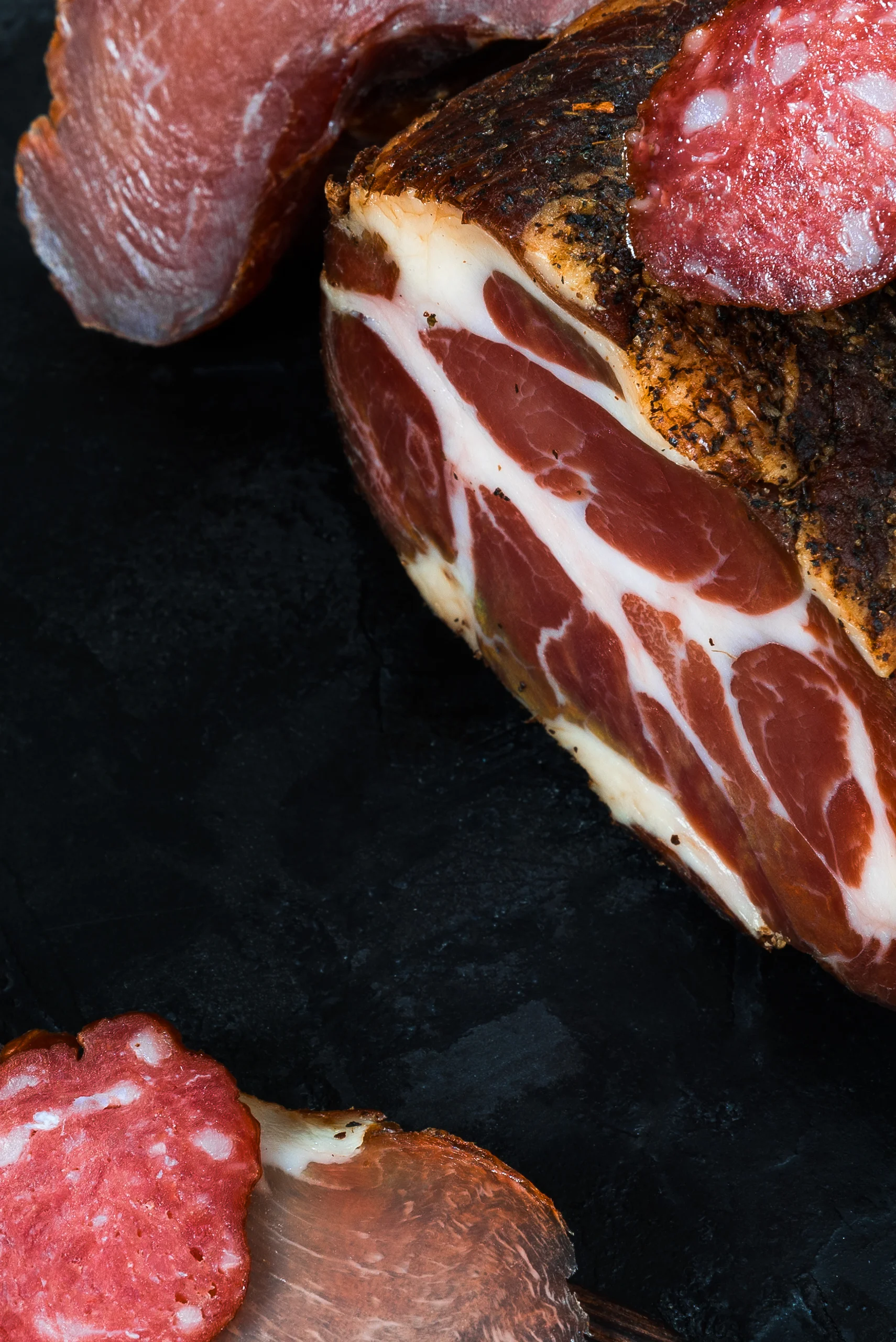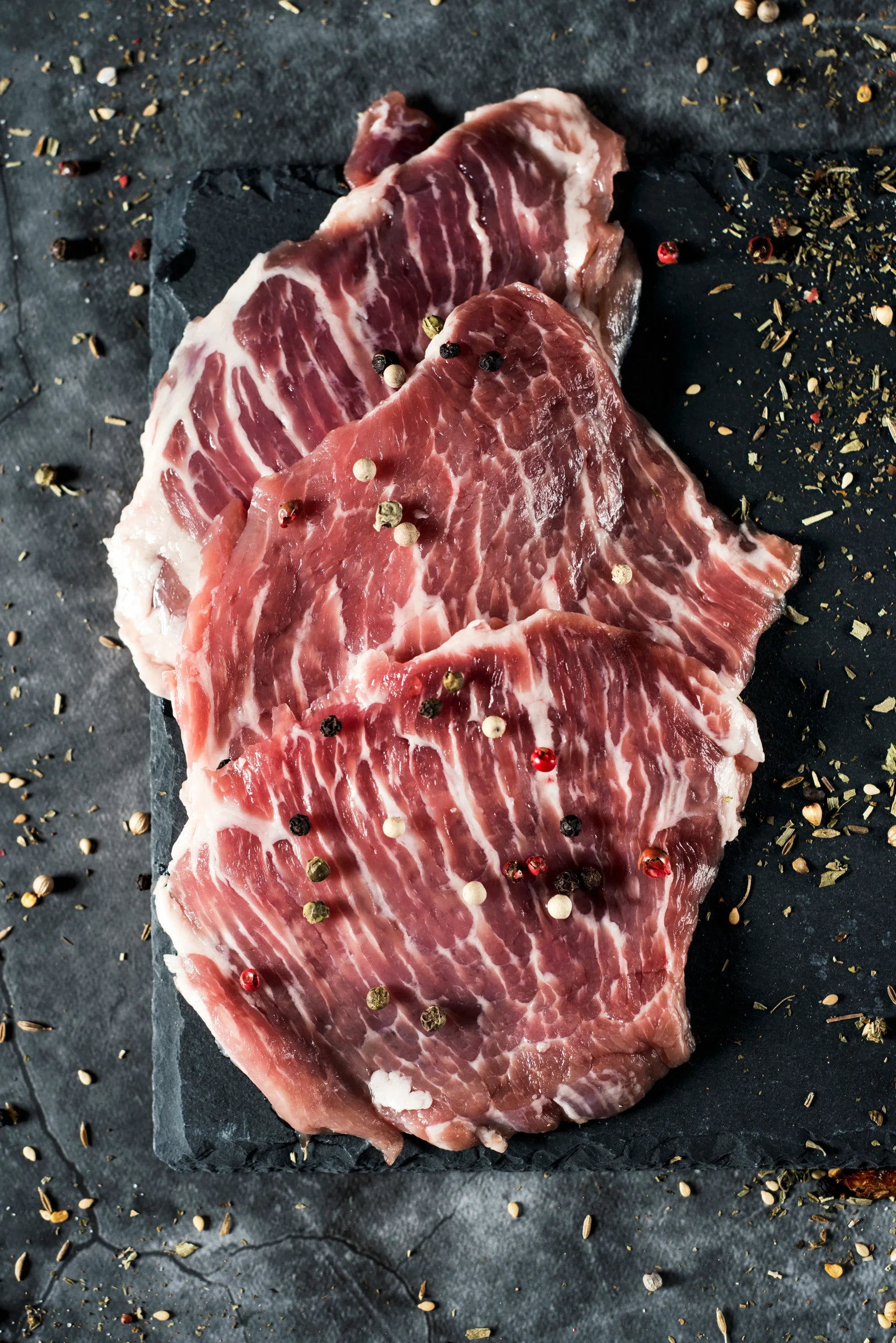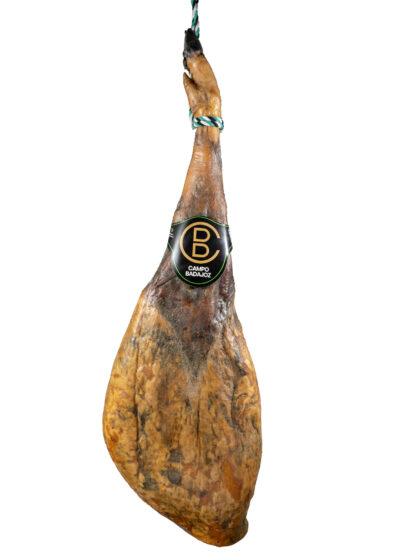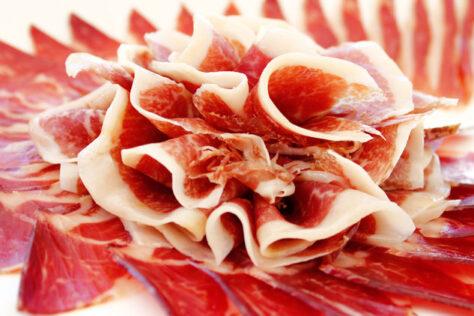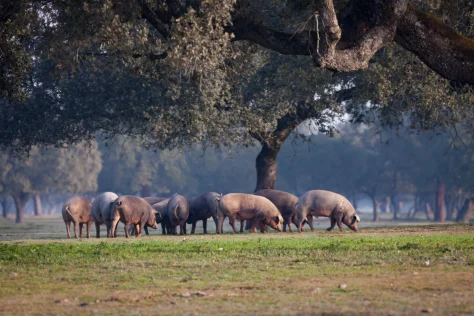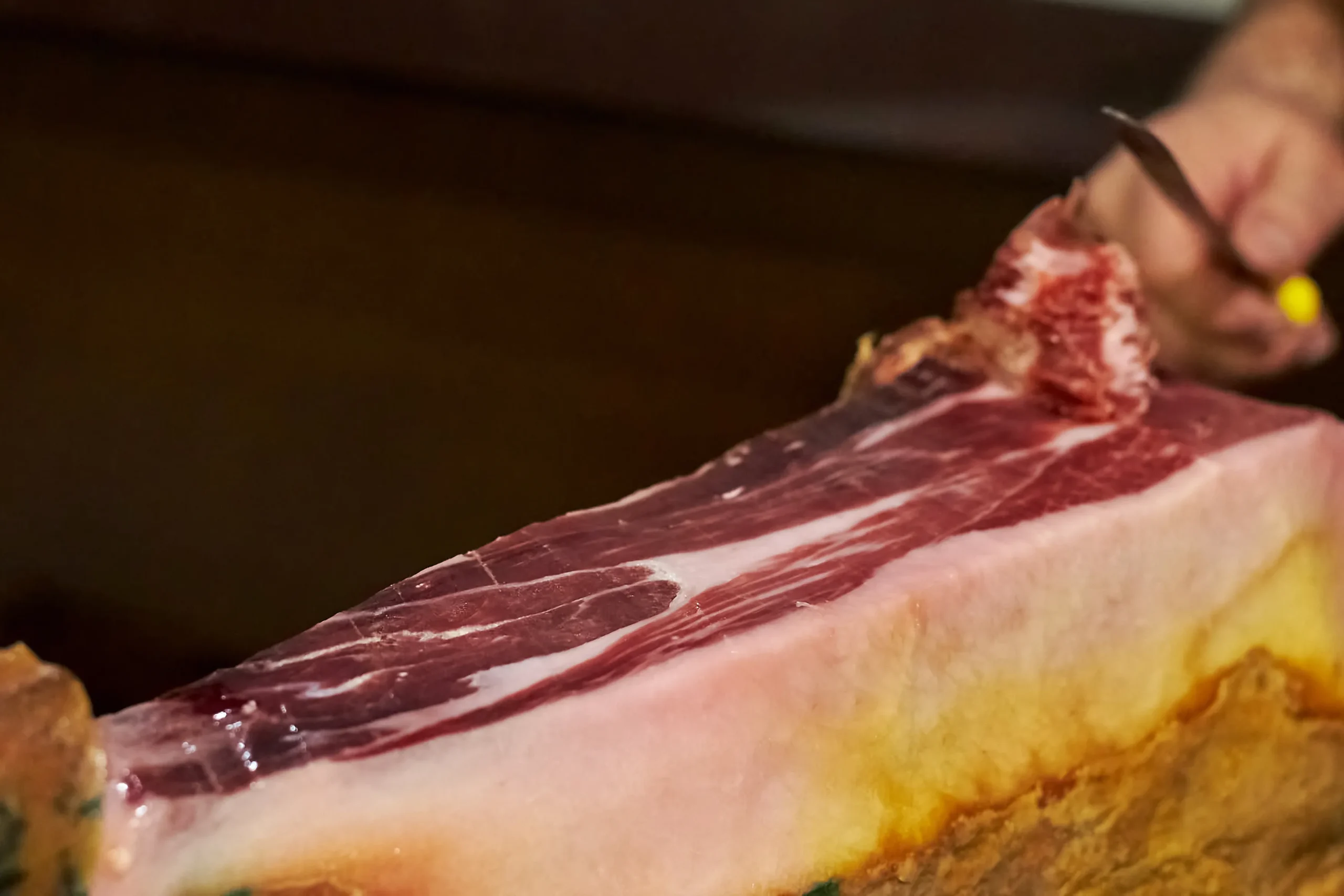Quality Iberian products
Let yourself be carried away by the unparalleled flavors that a good Iberian product offers.
Extremaduran tradition in every bite
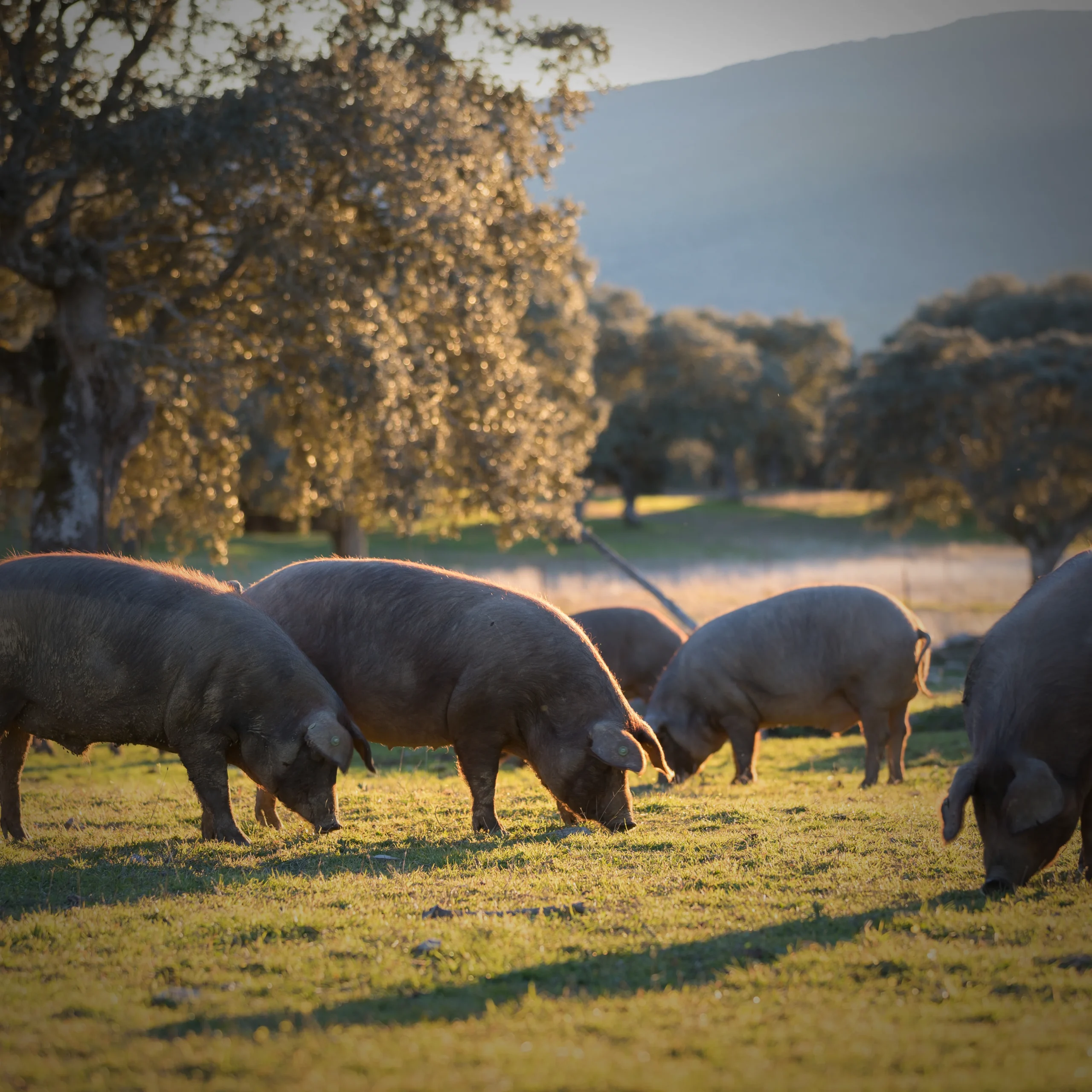
Time to change direction
Extremadura needs a renewal towards industry and marketing, and it should start with the marketing of its own products.
Campo Badajoz is a brand that was born in response to Extremadura’s need to sell directly the products of its own land, which are now processed and refined by other regions of Spain that buy livestock in Extremadura. It’s time to establish our own brand. Currently, we complete the entire cycle, which includes breeding and selecting the livestock on our own farms, production, and nationwide distribution. An export campaign to new markets is being launched.
Completely Extremaduran
Campo Badajoz ist eine Marke, die als Antwort auf das Bedürfnis der Extremadura entstanden ist, die Produkte des eigenen Landes direkt zu verkaufen, die nun von anderen Regionen Spaniens, die Vieh in der Extremadura kaufen, verarbeitet und veredelt werden.
The livestock is reared on their own farms, in the open air and completely spread out over the vastness of the Campo Badajoz farms.
What determines its quality
All the animals live in Extensive System, with great mobility for growth, where they experience the microclimate of Extremadura, the origin of quality Iberian products. The main diet consists of natural feeds, herbs, roots, and acorns.
Here is a guide to the classification based on purity, feeding, and labeling:
Purity, feeding, and labeling
We can differentiate three denominations, each of which derives its name from the origin of the pig:
100% IBERIAN
These pigs come from 100% Iberian parentage, both the father and the mother, making them of the highest quality and possessing the best organoleptic properties.
75% IBERIAN
When the origin of the pig depends on a 100% Iberian mother and another parent of 50%.
Typically, Iberian heritage also exhibit excellent quality, with any alterations in flavor or texture being relatively minor.
50% IBERIAN
These pigs come from a single Iberian parent, typically the mother. The differences are noticeable, especially in taste and texture, with the latter being somewhat inferior in terms of quality.
We can differentiate 3 types of feeding. This directly affects their organoleptic properties:
ACORN-FED
During the montanera season (from October to February), the pigs are fed with acorns and wild herbs in the pasturelands (dehesas). Additionally, their diet is complemented with a layer of fat infiltrated into the meat, resulting in a high-quality product with a unique flavor and texture, as well as a high content of monounsaturated fatty acids.
FIELD-FED DIET
Although their diet is not as varied and natural as that of acorn-fed Ibérico pigs, the field-fed system allows the pigs to have a larger space to move and feed, which can improve their animal welfare. The field-fed diet is used for the production of high-quality pork meat, resulting in a pleasant flavor and texture.
FEEDLOT DIET
“Cebo” refers to a pig production system in which the animals are raised in enclosed facilities with limited access to outdoor space. The feeding of cebo pigs is mainly based on feed and cereals, which may include by-products from the food industry. This results in lower quality meat, with both texture and flavor being altered.
We can differentiate four types of labeling. Depending on the type of pig, it will have a different label:
BLACK
The color black can be used in labels that certify the quality of the meat based on the geographical region where it has been produced. For example, in Spain, the Denomination of Origin “Jamón de Huelva” (Huelva Ham) uses the color black in its labeling.
RED
The color red is often used in labels that certify that the pig has been raised freely and has been fed with acorns, making it an acorn-fed Ibérico pig or “de bellota” or “de montanera” in Spanish.
GREEN
The color green is often used in labels that certify that the pig has been raised freely and has been fed with feed, making it a field-fed Ibérico pig or “de cebo campo” in Spanish.
WHITE
The color white is often used in labels that certify that the pig has been raised in enclosed facilities and has been fed with feed, making it a “cebo” pig.
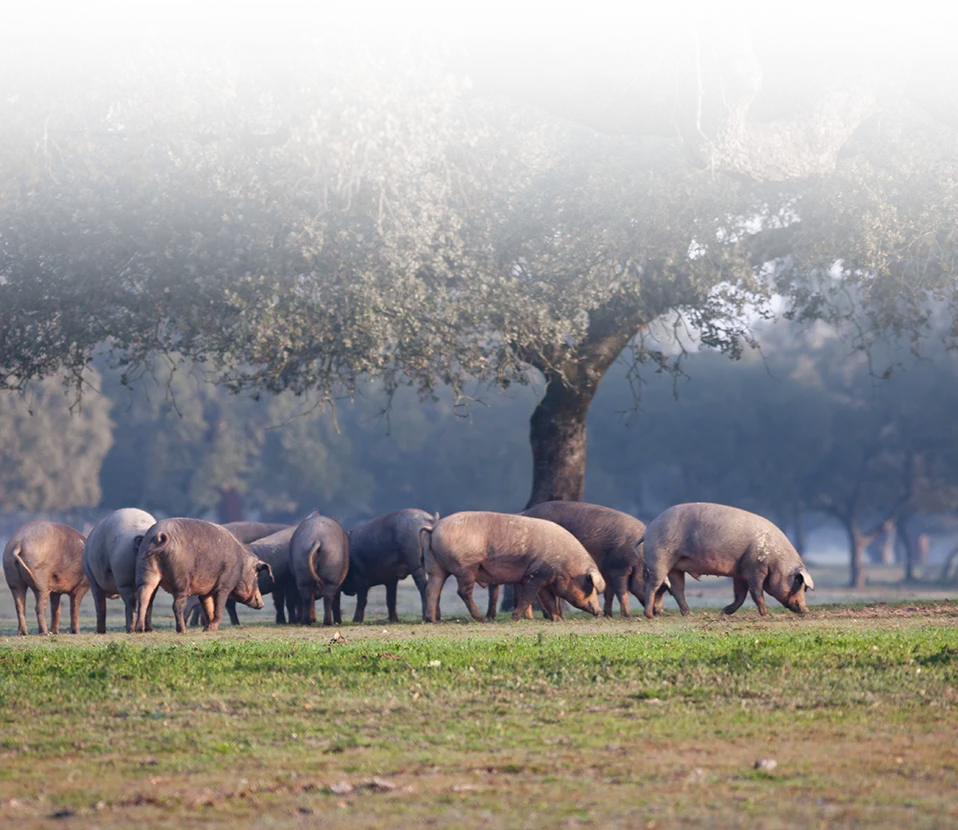
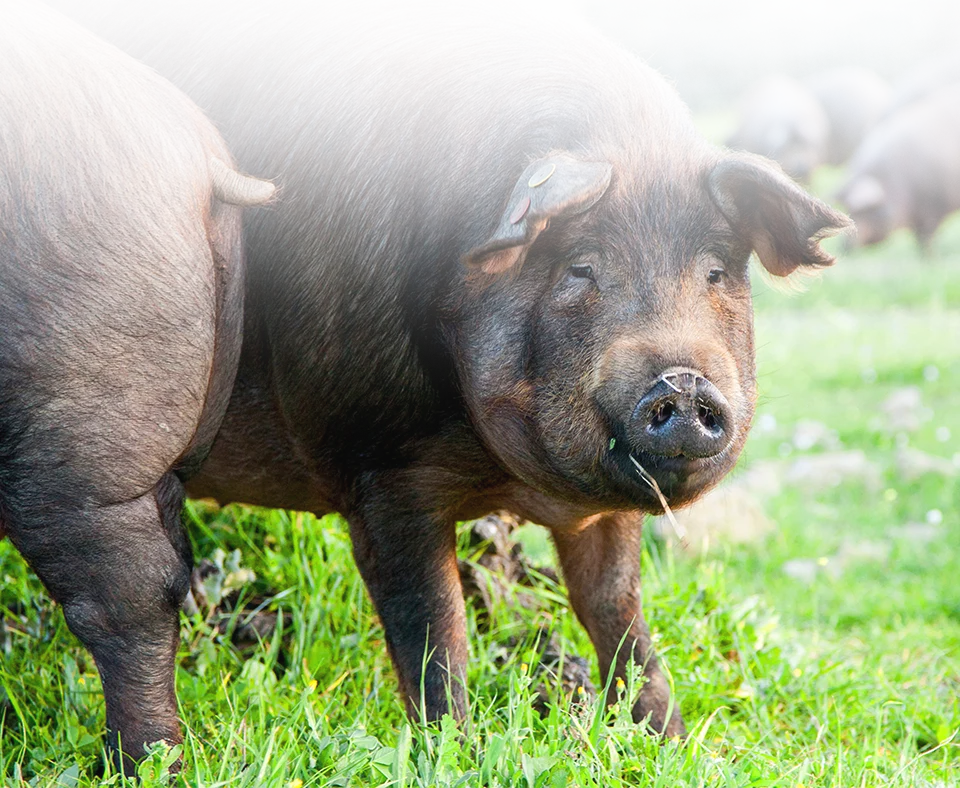
Our recommendations
We love to share, so here we leave you our personal recommendation of some products. Remember that in the store you have our complete catalog. What are you waiting for? Don’t miss out!
The item has been added to the cart
Adding product to cart...
Blog
Stay up to date with the latest news we publish
- 1 June, 2023
Is Iberian ham the same as pata negra ham?
When we talk about superior quality ham, two terms that often come up are "jamón ibérico" and "jamón de pata negra". These names are used to describe two types of premium ham, but what are the real differences between them?
- 15 May, 2023
Aeceriber affirms that Spain will not be left without eating Iberian ham
In a statement issued today, the Spanish Association of Iberian Pig Breeders (Aeceriber) has firmly stated that the supply of Iberian ham in Spain is assured and that there will be no shortage of this exquisite delicacy.
- 3 April, 2023
Iberian Ham, a Natural Source of Omega-3
Iberian ham is one of the most renowned and cherished products in Spanish gastronomy. It is not only known for its exceptional flavor and delicate texture but also for offering several health benefits.
